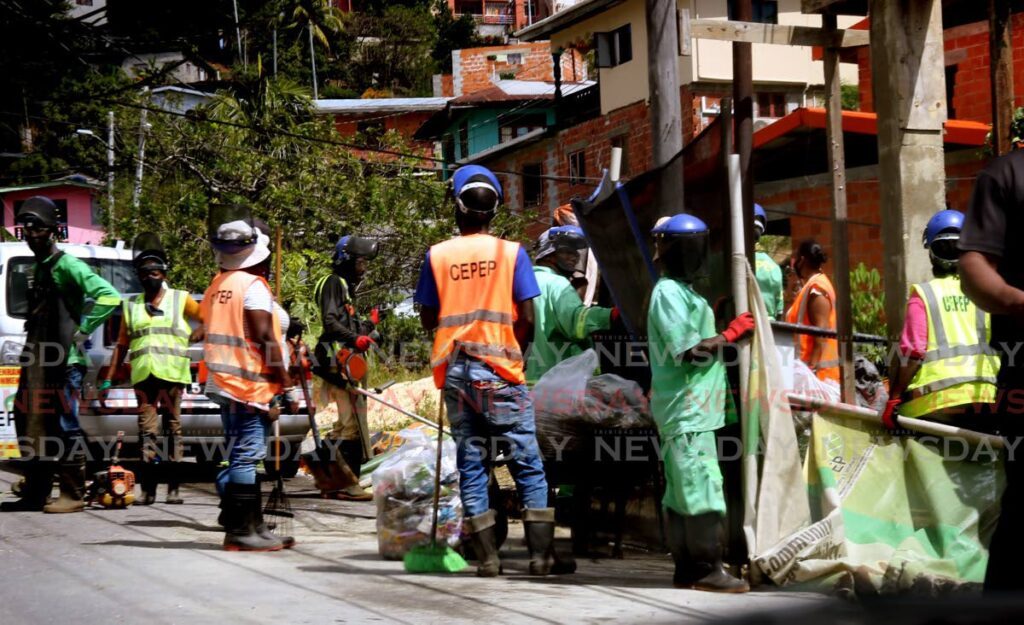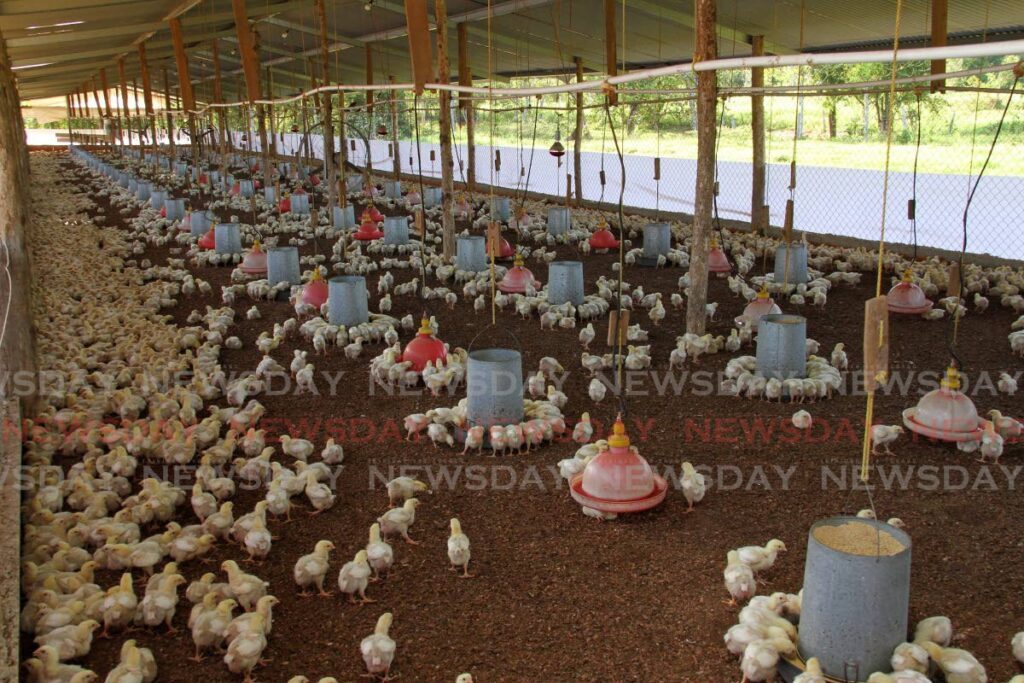Police, CEPEP and farmers feeling the heat

Head of the TT Police Service Corporate Communication Unit Joanne Archie says police have taken “serious note” of the hot-spell warning issued by the TT Meteorological Service last week.
Speaking to Newsday on Monday, Archie said, “The very nature of policing, places us at a higher risk of heat stress especially those who are required to perform foot patrols and other outdoor services to the public.
“The welfare of our officers is very important to us and as such…the Police Health Facility has been proactive in issuing internal alerts, utilising all communication platforms, on how our police officers can protect themselves whilst on patrol or even at their offices.”
There will be no halt in police patrols as Archie said police visibility could have a positive impact on police-community relations and crime prevention.
Officers will instead remain hydrated while on patrol as they simultaneously battle the heat and crime.
“We continue to engage in our active directed patrol regimen which includes both foot and mobile patrol while ensuring that our officers remain hydrated when exposed to the outdoor heat, to avoid heat stress and heat-related illnesses.”
Meanwhile, CEPEP is considering allowing workers to work one hour less as the organisation takes measures to protect the workers from the heat.
CEPEP chairman Joel Edwards told Newsday, “We are considering strongly the implementation of shorter working hours. At least one hour less so employees will work from 6 am till 11 am.”

He added CEPEP would also look into the possibility of supplying contractors with water so that workers could remain hydrated while on the job.
Edwards said the measures were being considered and that final arrangements would be “worked out” in due course.
He also requested that contractors be on the alert for employees who might show signs of being negatively impacted by the heat so they can take the necessary action to get them to an area where they can rest.
A a statement from CEPEP on Monday, said the Company had distributed reading material to all contractors on heated-related illness, signs and symptoms as well as emergency procedures.
It quoted CEO Keith Eddy as saying, “We want to make sure that all contractors and their workers are aware of potential heat-related injuries and are prepared to take the necessary steps to ensure workers remain healthy and safe on the job.”
He added, “Safety is paramount at the CEPEP Company and as such, we want to safeguard the health and well-being of workers on the field.”
CEPEP advised workers to drink water often to remain hydrated, take breaks often to stay cool, wear light-coloured and loose-fitting clothing and avoid excess layering of full facemasks and other additional clothing such as sweaters.
Contractors were reminded of their “duty of care towards their workers” and encouraged to implement heat-stress awareness training and an emergency plan.
CEPEP said contractors should also help workers, particularly those are new to working outdoors in the heat or have been away from work for a week or more, to get acclimated.
The heat is also affecting animals.
Livestock farmer Shiraz Khan told Newsday that the cows in TT were not bred to withstand the extreme heat being experienced.
“Our cows are basically temperate animals that came into the Caribbean. We imported those breeds into Trinidad. Those animals are now being threatened in terms of the amount of extensive heat.”
He said the effect was also being felt by other animals as he noted a significant decline in the amount of milk being produced by his goats.
“What is affecting me the most right now is the quantity of milk being produced. My goat milk is sold everyday and my production has dropped by almost 25 per cent.”
Khan said he was unable to increase prices to offset the drop in production as his milk will no longer be competitive.
“I can’t raise the price because we also have imported milk coming into the country and there are some big farms enjoying tax concessions.
“I survive based on the quality of the milk I produce, because of the quality, people may pay a few dollars more.”
Khan said the heat was also affecting the main food source for the animals.
“The grass is drying up extremely fast so it doesn’t have the necessary nutrients to assist (the animals) in any way whatsoever.”
He said the lack of water amidst the heat wave was also proving to be a significant problem.
“Animals are consuming much more water and we have a situation in Carlsen Field where we don’t have water on a regular basis.”
Khan said that was affecting his bottom line as he now had to pay for additional water while suffering a reduction in income.
He said a 400 gallon tank of water could cost up to $400 with a truck-borne supply costing as much as $800.
Other small-scale farmers are also feeling the heat according to Tristan Balloo, a director at Humble Hands Homestead, a small family-owned poultry farm.
Speaking with Newsday by WhatsApp, Balloo said the heat had negatively impacted his business.
“There were casualties due to excessive heat. Hatchlings had to be carefully monitored in their brooders due to changes in temperature. Chicks that have not been brooded properly can suffer ill health in their growth.”
Balloo added, “Within the month of September, we’ve lost an average of three adult breeders and about 30 chicks.”

He said hens had also reduced the number of eggs they laid daily owing to the change in temperature.
As a farm that focuses on selling organically-raised speciality breed chicks, Balloo said there might be an increase in chicken prices downstream.
He said customers who bought the chicks to rear may consider the level of “mortalities, ill hatchlings and hens that are not laying due to the environmental changes.”

Comments
"Police, CEPEP and farmers feeling the heat"